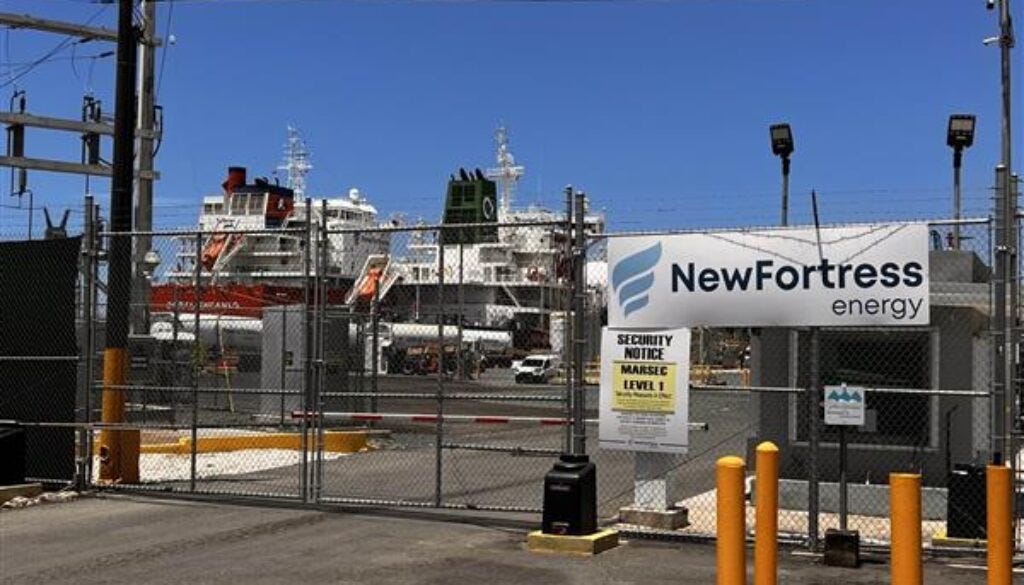Must-read recap: The New Lede's top stories
EPA fast-tracking of gene-altering pesticide sparks concerns; young brains appear to be at risk from popular weedkillers; Puerto Rico's natural gas buildout may harm those it claims to help.
EPA fast-tracking of gene-altering pesticide sparks concerns
US regulators are fast-tracking a novel, gene-altering insecticide in an unusual move that would greenlight the product for three years of commercial use before a standard testing period is completed.
Calantha, a product of the company GreenLight Biosciences, contains the active ingredient ledprona, which uses a mechanism called RNA interference (RNAi) to kill the Colorado potato beetle, a notorious pest, by turning off genes it needs to survive. Calantha would be the first pesticide spray using RNAi, though the technology has been genetically engineered into some corn plants to protect them from the corn rootworms, and RNAi has a history of use in medical therapeutics and vaccines.
The Environmental Protection Agency (EPA) just granted GreenLight Biosciences an Experimental Use Permit (EUP) in May, giving the company two years to gather and assess data from use of the new product in limited test plots. But now the new pesticide could be widely sprayed on potato crops around the country as early as this spring.
Critics fear that the new pesticide is being rushed to market without sufficient data to demonstrate that it is safe for human health and the environment. They also question whether it will be effective.
“It’s a huge precedent-setter,” said Michael Hansen, a senior scientist at Consumer Reports. “This is a new form of pesticide which has never been on the market before. When this is a new class [of pesticide], you shouldn’t be cutting corners.” (Read the rest of the story.)
Young brains appear at risk from exposure to popular weed killers
Exposure to two widely used weed killers could be harming the brain function of young people, impacting their memory and learning abilities, according to a study published Wednesday.
The study looked specifically at glyphosate, the active ingredient in Roundup herbicide and scores of other brands, and also at 2,4-D – a long-used, weed-killing chemical that has seen a surge in use in recent years and has increasingly been combined with glyphosate to kill tenacious weeds.
Concerns about impaired brain function were associated with both chemicals, particularly with 2,4-dichlorophenoxyacetic acid (2,4-D), according to the study, which was led by researchers at the Herbert Wertheim School of Public Health and Human Longevity Science at University of California San Diego and published in the journal Environmental Health Perspectives.
“This herbicide (2,4-D) has gone mostly under the radar and more studies aimed at understanding the health effect of herbicide exposures are needed,” said Jose Ricardo Suarez, director of the Climate and Environmental Health Research Program at the University of California San Diego.
“This builds on the growing knowledge that not just insecticides – pesticides that are designed to be neurotoxins – can affect brain processes,” Suarez said. The study showed that as herbicide exposures increased, neurobehavioral performance decreased, he said. (Read the rest of the story.)
Puerto Rico’s natural gas buildout may harm those it claims to help
Since 1999, Lissie Aviles, a Catholic nun, has lived in a convent in Cataño, Puerto Rico, a tiny town that borders the Bay of San Juan. The area is home to the world’s largest rum distillery, a Bacardi factory dubbed the “Cathedral of Rum.” Just across the bay, millions of tourists – many from the US mainland – flock to visit Old San Juan’s beaches and historical sites each year.
Cataño is known both as the smallest municipality on the island and as “the town that refused to die,” after it succeeded in fending off an early twentieth-century effort to merge the city with the inland community of Bayamón. The challenges for Cataño residents have persisted — after Hurricane Maria devastated the island in 2017, about 60% of Cataño residents were left homeless. Today, about 46% of the population lives below the poverty line in a US territory lacking full political representation and weighed down by a long legacy of colonization.
Aviles spends much of her time training faith educators in nearby parishes. But in recent years, her work has taken on an additional focus – defending local residents against harmful impacts tied to the island’s intensifying focus on expanding access to liquified natural gas (LNG).
The federal government has earmarked billions of dollars to help stabilize the island’s hurricane-rattled power system, including funding temporary generators powered by natural gas. Additionally, the US Army Corps of Engineers (USACE) has approved a project to dredge the San Juan Bay beginning in January, allowing the nearby LNG terminal to receive ships carrying six times more LNG than current tankers. And one particularly contentious project is expanding with a new LNG pipeline. (Read the rest of the story.)





